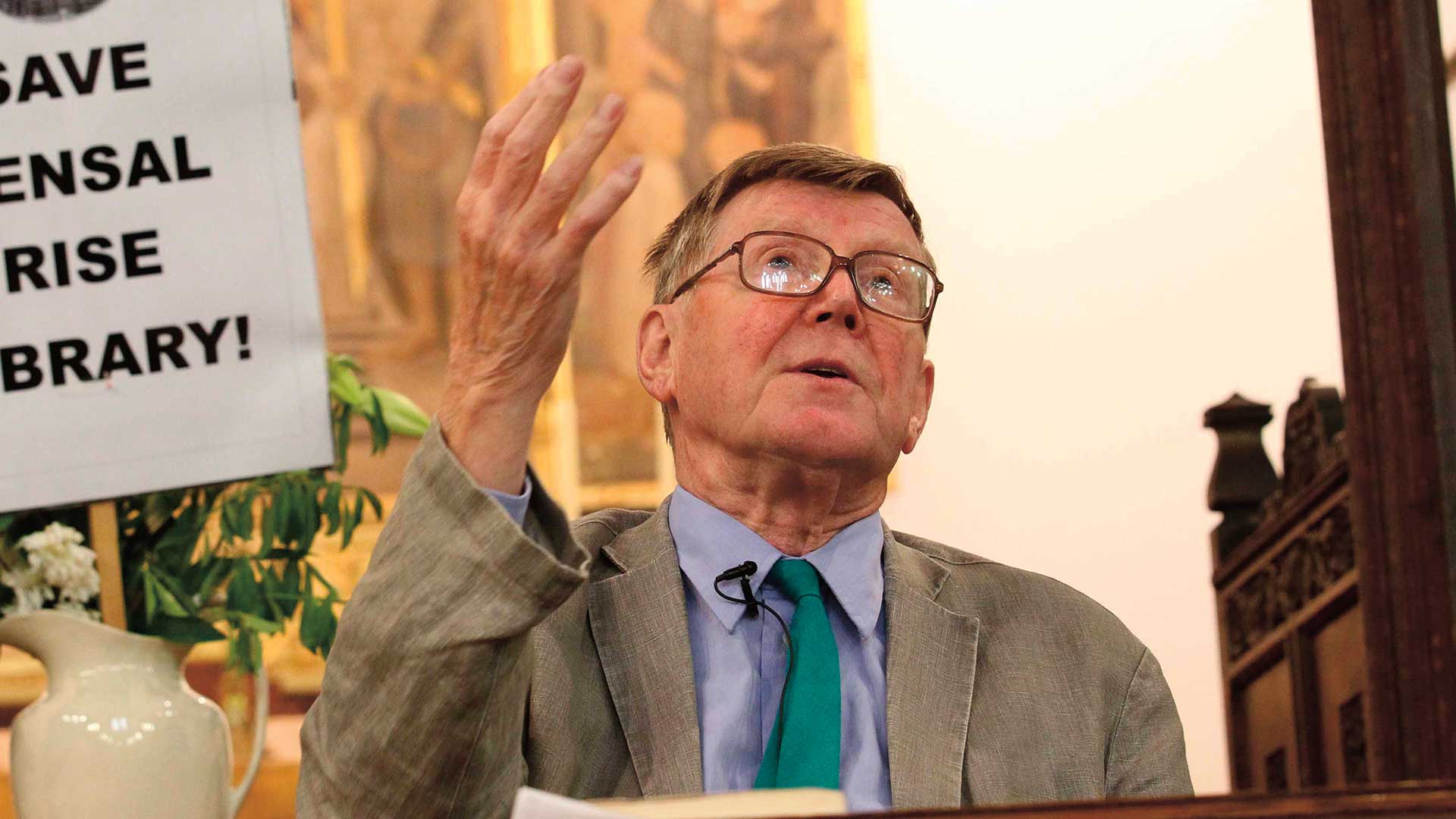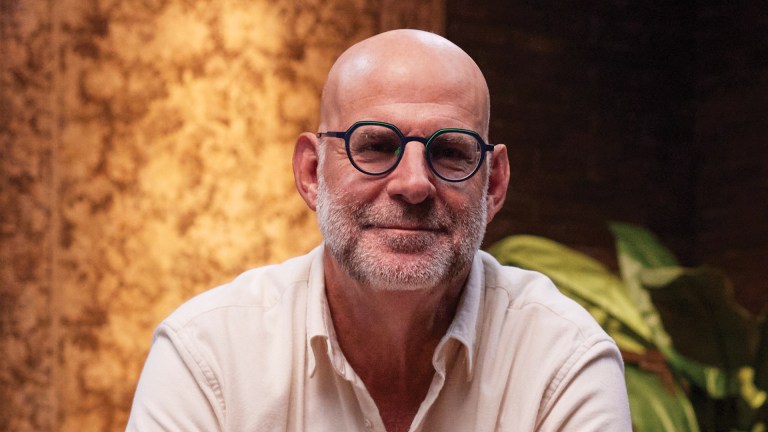Interviewing Alan Bennett feels as if you’re a walk-on in one of his plays. We are chatting in what his mam would have called “the parlour” of the Primrose Hill home where he’s lived for a decade with his partner Rupert Thomas. Paintings line the walls and the furnishings are antique yet the room feels lived-in rather than fancy, despite the fact Thomas edits World of Interiors.
Theirs is among the least flashy houses in the crescent – in the colour-washed villas opposite, Bennett tells me, Paddington was filmed, the crew causing more chaos than the bear himself. Like Paddington, Bennett is seen as a national treasure but he’s not cosy enough for the role. Far from it. Much of his writing, plays and prose is deeply unsettling as, in his deceptively gentle way, he forces us to face uncomfortable truths about ourselves and about society and its changing mores.
Bennett is 82 now and a little deaf and (a joint or two having been replaced) slightly slower. “I can’t be here for much longer!” he announces cheerily during our chat, though the diaries which comprise the lion’s share of Keeping On Keeping On reveal a man whose zest for life and sense of mischief remain undiminished.
It’s more than half a century since Bennett made his public debut in Beyond the Fringe, which grew out of the Oxford Revue and, after success in Edinburgh, transferred to London and then New York. The issues it so daringly and hilariously tackled – class, privilege, hypocrisy – are as live now as they were then and it’s astonishing to watch a man so “afflicted” with shyness holding his own with three exhibitionists, Peter Cook, Dudley Moore and Jonathan Miller. Bennett has acted with fair frequency down the years, in his own work and occasionally that of others, and he stepped in at the stage opening of The Lady in the Van in 1999 when Nigel Farrell, cast as “Alan Bennett” opposite Maggie Smith’s Miss Shepherd, rushed off to become a father.
My father always longed for a garden – and we’ve been in the village ever since
In recent years he’s had to get used to Alex Jennings inhabiting the role, first in the autobiographical play Cocktail Sticks and, more recently, in the screen version of The Lady in the Van. “He’s very good,” Bennett tells me. “He used to imitate me on the quiet – I’m sure lots of people do because I’m very easy to imitate. He looks more like me in The Lady in the Van than he did on stage in Cocktail Sticks when he was too blonde and Veronica Lake-like.” Does it make him self-conscious? Bennett giggles. “I’m too old to amend my behaviour.”
Publishing a book is enough of “a performance” for his liking these days, involving as it does “all sorts of incidental things. I’ve got to go to Leeds to talk about it, and I’ve got an event in the Chapel at Islington and one at Primrose Hill Library. Adam Low has followed me around for a year, filming the various things I’ve done, and he’s put together a documentary where I mostly read my diaries. It’s going out on television on New Year’s Day but in November it’s going to cinemas for just one night and the actual broadcast is from Primrose Hill, where I have to do a question-and-answer.”









